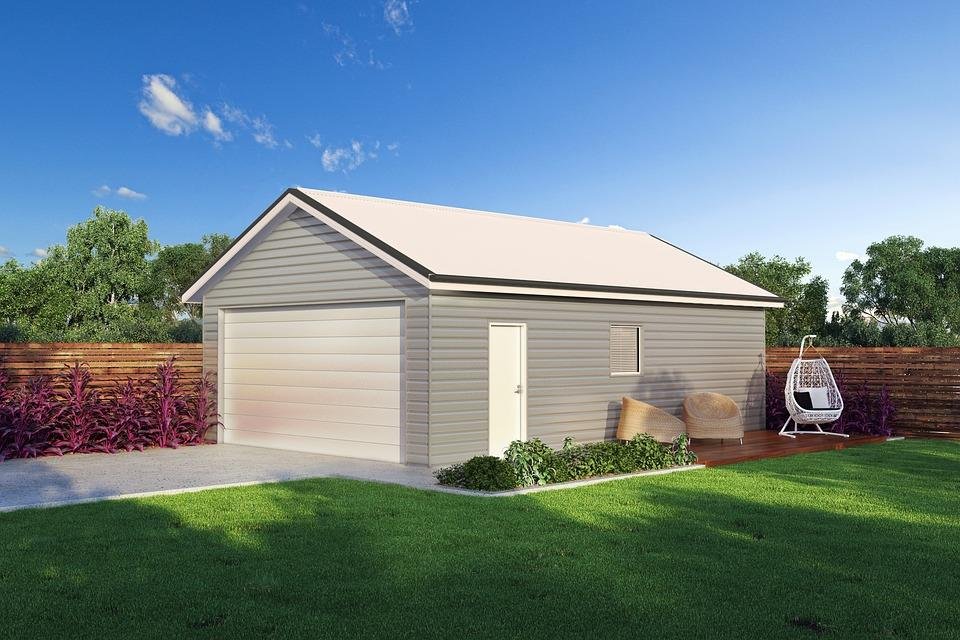Owning expensive items like vehicles and homes often means a desire to keep them safe and protected. Since you spent so much money on these belongings, you likely want to do everything you can to avoid problems such as theft and damage.
While your home can benefit from safety features such as security systems and cameras, your vehicle may be more challenging to protect — especially if your home doesn’t have a garage. Garages offer safety for your car from incidents like theft, weather damage, and vandalism.
Although there are options if you are robbed of your car, like insurance coverage for a stolen vehicle, it’s better to avoid the problem altogether if possible. This is why adding a garage to your home can be such a benefit in the long run.
Table of Contents
How to Determine What Garage Fits Your Needs
Before diving into the many benefits garages offer, you must understand what type of garage will work best for you. There are many different styles, sizes, and layouts of garages, so choosing the right option is essential.
One of the first choices to consider is whether or not you want the addition to be attached to your home. Garages can be an excellent investment either way, but it’s essential to consider what you prefer. Attached garages offer the convenience of not having to walk outside from your car to your home.
Detached garages offer more privacy and potential space since they will be a standing structure all their own. However, because they will need to be built from the ground up, they often cost more than an attached garage.
Size is the next factor to consider. Ask yourself how many vehicles you plan to park inside your garage and what else you plan to use it for. You may also want to store other items, like a large lawnmower, motorcycle, or off-road vehicle.
After you determine size and structure, you’ll want to ensure you follow all zoning laws where you live. There may be certain restrictions on what you can build, and it’s essential to determine these possible problems before you begin your project.
A Garage Offers Your Vehicles Extra Protection
Some things are unavoidable, even if you try to be as careful as possible with your car. Incidents like severe weather are a common cause of damage to vehicles that are left outside and unprotected.
Heavy winds, hail, and extreme snow can all damage your car. Depending on your insurance coverage, you may find yourself paying for the repairs for these incidents out of pocket. Even if you have “acts of God” car insurance coverage, you will still find yourself without your vehicle for an undetermined amount of time.
Other potential problems that may arise from leaving your car parked outside are theft or vandalism. Thieves see a car left unattended as a welcome sign to come and attempt to take what doesn’t belong to them.
A stolen vehicle can be a huge hassle to deal with. You’ll have to file a report with the police, search through video footage if available, contact your insurance company, and make a list of what items were in your vehicle when it was stolen.
The process of locating a stolen car can be lengthy and stressful. It can be an average of 48 hours before police can find your vehicle. Though, some instances take much longer.
Avoiding potential weather damage, theft, and vandalism is a great benefit of adding a garage to your home.

You Can Gain Additional Storage From a Garage
Depending on your home’s layout, you may struggle to find a place for some of your belongings. Often, items like a junk car, seasonal decorations, hobby equipment, and lawn care tools must be put away when they aren’t in use.
These belongings may be large and take up too much space in your home to keep them in a convenient place. A garage can solve this problem easily by offering extra storage space for you to utilize.
Even if you are not planning to add on a massive garage, you can still get the most out of your space with a few organizational hacks. Things like pegboards, wall mounts, and shelving units can help you maximize your storage space without overtaking your garage.
No matter what size you choose or how you decide to organize it, the additional storage you’ll gain is a great benefit of adding a garage to your home.
Additional Resource: To learn about Garage storage, click here
Garages Add Value to Your Home
Even if you’re not planning to resell any time soon, the value a garage can add to your home makes it an asset. Whether you choose to build an attached garage or a detached one, the investment will practically pay itself back if you decide to sell.
On average, adding a garage costs about $27,000 to build. While this number may seem steep, you can also expect an 81% return on your investment. This means you should increase your home’s value by about $21,000 once you have completed your garage.
Some factors could harm your home’s value, so it’s essential to consider them before building your garage.
One of the most essential considerations is the size. A massive garage on a small lot can make your space feel extremely cramped. This often isn’t desirable to potential buyers, so be sure to choose a garage size that doesn’t envelop the entirety of your outdoor space.
It’s also crucial to choose a garage style that matches your existing home. The overall look of your garage will affect desirability, so be sure to choose something that fits seamlessly with your existing structure.
Adding a Garage to Your Home Bring Many Benefits
While the initial cost of a garage addition can seem like a steep investment, this project will certainly pay for itself over time in money and benefits. Adding a garage to your home can offer vehicle protection from instances like extreme weather, theft, and vandalism. It can also provide extra storage space and add value to your home.
While it may not be an easy project, the benefits of adding a garage to your home are well worth the time and money spent.
Alexandra Arcand writes and researches for the auto insurance comparison site, AutoInsurance.org. She is a home renovation expert who enjoys sharing her improvement tips with others.










